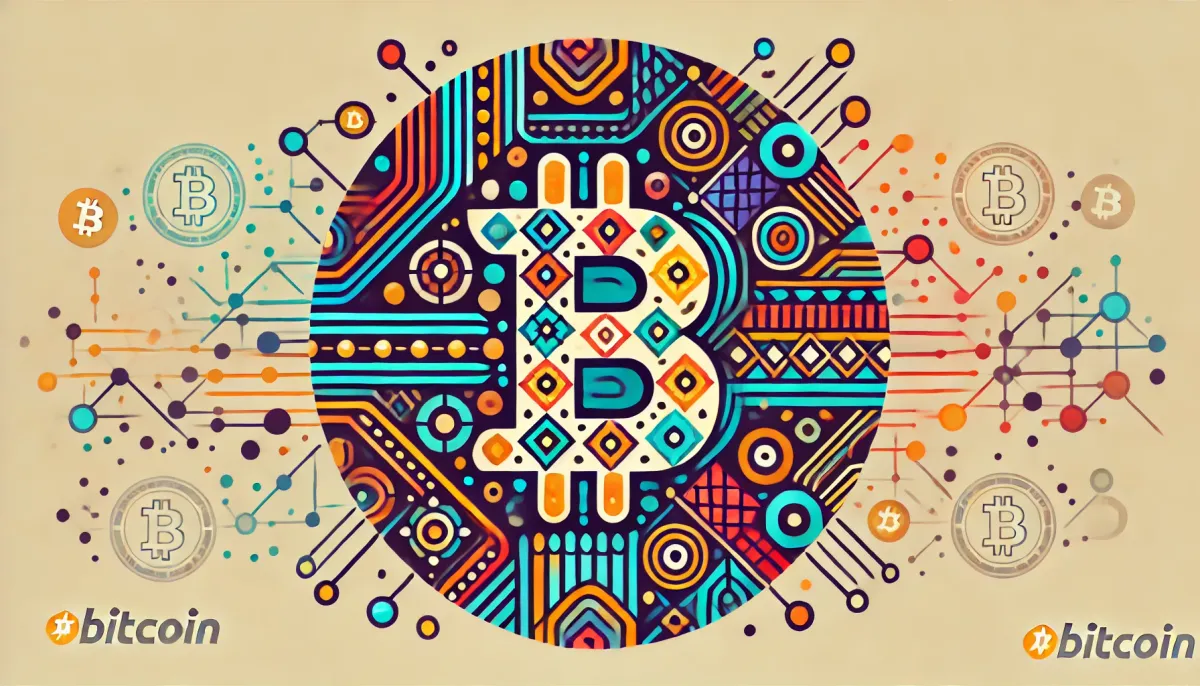Securing Election Integrity with Bitcoin: Lessons from Guatemala
In the October 13, 2024 episode of The Bitcoin Source, Carlos Toriello, from Simple Proof, shared how his company successfully applied Bitcoin to protect the integrity of Guatemala’s national elections by timestamping election data on the Bitcoin blockchain.

Briefing Notes
My 'briefing notes' summarize the content of podcast episodes; they do not reflect my own views. If you have comments about this briefing note, please leave a comment below (requires signing up for a free blog subscription). Note that some of the podcast episodes I summarize may be sponsored: don't trust, verify, if the information you are looking for is to be used for decision-making.
Summary
The October 13, 2024 episode of The Bitcoin Source, examines how Bitcoin technology was successfully used to protect election integrity in Guatemala, preventing fraud and ensuring transparency. Carlos Toriello from Simple Proof explains how Bitcoin's blockchain immutability was leveraged to timestamp election results, making them tamper-proof and independently verifiable. The success of this implementation demonstrates how Bitcoin can safeguard public records and address global challenges, such as AI-generated disinformation.
Take-Home Messages
- Bitcoin ensures election integrity by using its blockchain to timestamp and protect election results from tampering.
- AI-driven disinformation threats can be mitigated using Bitcoin, which offers a secure and decentralized system to verify public records.
- Guatemala’s election system is a successful case study, showing how Bitcoin can be applied at a national scale for election transparency.
- Bitcoin is affordable and scalable, meaning even resource-constrained nations can adopt it to secure their public records.
- Decentralized trust through Bitcoin reduces reliance on central authorities, empowering individuals to verify information independently.
Overview
In the October 13, 2024 episode of The Bitcoin Source, Carlos Toriello discusses how a company, SimpleProof, used Bitcoin to secure Guatemala’s election results in response to concerns of fraud during the 2019 elections. Using Bitcoin’s blockchain, election results were timestamped, ensuring their immutability and preventing any alterations. This solution provided the public and authorities with a transparent and reliable system to verify election results, removing the need to rely solely on the election authority’s word.
Beyond elections, Toriello explains the broader application of Bitcoin in securing public records, from tax documents to property deeds. In an era where AI-generated disinformation threatens the integrity of digital information, Bitcoin serves as a powerful tool to verify truth. By timestamping public records to the Bitcoin blockchain, Simple Proof provides a safeguard against tampering, enabling independent verification of government-issued data.
Toriello believes that this technology can be scaled to other nations, including the U.S., where local election authorities could adopt Bitcoin-backed timestamping to secure election results. Unlike Guatemala, the U.S. has a decentralized election system, but Bitcoin’s flexibility allows it to be integrated into existing infrastructures without significant overhauls. The core benefit of Bitcoin is its ability to secure data without the need for trust in any central authority, making it a viable solution for countries seeking to improve transparency and integrity in their elections.
Stakeholder Perspectives
- Election Authorities: May see Bitcoin-based solutions as an affordable and scalable way to secure election data and improve public trust.
- Government Officials: Some may resist adopting Bitcoin due to a lack of technical understanding or fear of change but could be persuaded by its cost-effectiveness and transparency.
- Bitcoin Investors and Entrepreneurs: Will view Bitcoin’s expanding use in election systems as an opportunity to promote further adoption of Bitcoin-backed applications.
- Voters and the Public: Likely to benefit from increased trust in election results but need to be educated on Bitcoin’s role in securing public data.
Implications
The successful implementation of Bitcoin for election security in Guatemala could encourage its adoption by other countries seeking to improve transparency and prevent election fraud. For policymakers, Bitcoin offers a cost-effective way to secure digital records, protect against AI-driven disinformation, and enhance public trust in government processes. If widely adopted, Bitcoin’s immutability could play a critical role in securing the future of democracy by ensuring the integrity of public data.
For investors, Bitcoin’s demonstrated application in securing large-scale election systems positions it as more than just a financial tool. It enhances Bitcoin’s value proposition as a decentralized, global infrastructure that can protect vital public records. This also opens new opportunities for Bitcoin technology to be applied in other sectors requiring secure, transparent record-keeping.
Future Outlook
As the threat of election tampering and disinformation increases, Bitcoin will likely become a more prominent tool in securing digital information. In the near future, Bitcoin-backed timestamping systems could be integrated into national and local election infrastructures, particularly in countries seeking to restore public trust in electoral processes. Governments will need to update legal frameworks to accommodate the use of blockchain technology, while also educating election authorities and the public on its benefits.
The broader application of Bitcoin for public records could transform how societies maintain accountability and transparency. By creating immutable records for elections, property deeds, and other public documents, Bitcoin offers a future where tampering with historical data becomes impossible. This shift may fundamentally change the relationship between citizens and their governments, empowering individuals to verify the truth independently.
Information Gaps
- How can Bitcoin technology be further integrated into election systems to prevent fraud on a larger scale? This question addresses the core challenge of scaling Bitcoin’s use for election integrity beyond isolated case studies like Guatemala. By understanding the technical and logistical needs, election authorities worldwide can implement Bitcoin-backed systems to prevent fraud more effectively.
- What are the technical and regulatory barriers to implementing Bitcoin-backed election systems at a local level in the U.S.? Local election systems in the U.S. face specific challenges, and understanding these barriers is key to deploying Bitcoin technology. Identifying and overcoming these obstacles can pave the way for decentralized, secure voting systems.
- What educational programs or initiatives could help government officials better understand the benefits of Bitcoin for election security? Lack of Bitcoin knowledge is a significant barrier. Effective educational initiatives will be crucial in helping officials and election authorities embrace Bitcoin for securing public records and election integrity.
- What legal reforms are necessary to integrate Bitcoin into official election systems in countries with outdated election regulations? Election laws need to evolve to incorporate new technologies. Answering this question will reveal the necessary legal adjustments required for Bitcoin to become a standardized tool for securing elections and public records.
- What strategies can be employed to increase public trust in Bitcoin as a reliable tool for securing election data? Public perception of Bitcoin’s reliability is essential for its adoption. Developing strategies to educate the public and demonstrate the security of Bitcoin-backed systems will encourage trust in this new approach to election integrity.
Broader Implications
Combatting AI-Generated Disinformation
As AI becomes more capable of producing disinformation, Bitcoin’s ability to timestamp and verify public records presents a powerful defense. The integrity of public records, including election results, is crucial in maintaining trust in government institutions. By securing these records on the Bitcoin blockchain, governments can provide the public with a verifiable source of truth, helping to combat the rise of AI-driven misinformation.
Scaling Bitcoin for Global Public Records
Beyond elections, Bitcoin's blockchain could be used to secure a wide range of public documents, from property deeds to legal contracts. By integrating Bitcoin's timestamping capability into global government systems, the integrity of these records can be preserved, reducing the risk of fraud or tampering. As governments seek to modernize their digital infrastructures, Bitcoin could play a central role in creating a more transparent and secure public record system.
Bitcoin Adoption in Regulatory Frameworks
The adoption of Bitcoin for securing public records will require regulatory frameworks to evolve. Governments will need to develop new laws that recognize the legal standing of blockchain-timestamped documents. As more countries adopt Bitcoin-backed systems, we may see global regulatory harmonization, creating a more consistent and secure method for public record-keeping.
Bitcoin's Broader Role in Democracy
The parallels between Bitcoin’s consensus algorithms and democratic voting systems suggest that Bitcoin could play an even larger role in the future of governance. By providing an immutable record of public decisions, Bitcoin can ensure that the will of the people is accurately reflected and preserved. As countries seek to protect their democratic processes from interference, Bitcoin’s transparent, decentralized system could offer a reliable safeguard for democratic integrity.



Comments ()